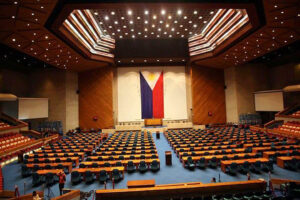Farmers call for focus on streamlined gov’t, not Constitutional amendments

FARMERS said on Sunday that legislators need to pay more attention to governance issues and reducing red tape, rather than pushing plans to amend the 1987 Constitution, calling the need to shore up food security more urgent.
Gregorio A. San Diego, Jr., chairman of the Philippine Egg Board Association, said seven foreign broiler producers and large Philippine integrators are mainly concerned about red tape.
“All of them including us are all complaining about the increasing chicken meat-import and LGU (local government unit) regulations, (and) not about land ownership,” Mr. San Diego said in a Viber message, referring to one of the proposed Constitutional reforms.
Last week, Albay Rep. Jose Ma. Clemente S. Salceda said amending the Constitution to ease restrictions on land ownership will help address food security issues.
“The key to boosting food production and reducing food prices in the Philippines is investment in agriculture,” he said in a statement.
“These restrictions cover ownership, lease, transfer, and even foreign management — leaving foreign investors very little room for involvement in local agriculture,” Mr. Salceda, who also heads the House ways and means committee, added.
United Broiler Raisers Association (UBRA) President Elias Jose M. Inciong said amending the charter is not the answer to the Philippines’ agricultural crisis, especially if imports remain a priority over local production.
“The crisis is mainly traceable to the failure to implement the design of our treaty commitments (domestic support, trade remedies, and quarantine systems [in] sanitary and phytosanitary systems) in the World Trade Organization (WTO),” he said in a Viber chat.
Mr. Inciong, a lawyer, said that past administrations have focused on import liberalization, weakening producers.
“The sector is a victim not only of neglect but also of an insidious false narrative that it is protected by high tariffs,” he said, also citing the government’s poor implementation of current agricultural laws as well as insufficient budget support.
He urged Congress to instead focus on implementing the Agriculture and Fisheries Modernization Act (Republic Act No. 8435), the magna carta for small farmers (RA 7607), and the Food Safety Act (RA 10611).
Provisions of the Local Government Code must also be reviewed, particularly on zoning, imposition of fees, and LGUs authority over quarantine and food safety matters, Mr. Inciong added.
Leonardo A. Lanzona, who teaches economics at the Ateneo de Manila, said passing laws that would allow agrarian reform beneficiaries to negotiate fair and efficient contracts with foreign corporations without giving away their land ensures a more equitable partnership that will make robust production more likely.
“In effect, the agrarian reform beneficiaries can be part-owners of these corporations with their land as their input to the potential production,” Mr. Lanzona said via Facebook Messenger chat.
He added that ownership does not correlate with agricultural production. “Land is so contentious that we cannot just open the constitution and allow big foreign corporations to take over the land.”
Congress has revived talks to amend the 1987 Constitution to soften economic restrictions and admit more foreign investors.
The Senate is set to conduct its own review of the charter, specifically on easing economic constraints on public utilities, advertising, and education. — Beatriz Marie D. Cruz




